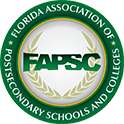There were fourteen findings that clustered around four themes: Students, The School Selection Process, The Training Program, and The Influence of the Institution. The specific findings were:
- Core commonalities of students and applicants.
- Selection process and the intentional marketing plan.
- Program length and the reality of program completion.
- Negative outcomes of an abbreviated decision-making process.
- The gap between students’ expectations and the training experience.
- Built-in academic and social integration.
- Built-in retention and intervention strategies.
- Built-in formal and informal job readiness and job placement activities.
- Changes in students’ lives as a result of training.
- The effects of a warm and caring work environment.
- The effects of staff background on relationships with students.
- The effects of owners’ interests and beliefs on school policies.
- The challenge of predicting student success.
- The school experience as a rite of passage.
Monthly Email
Tips Sign Up
We send periodic email tips with strategies to build your career school or college and other updates.


